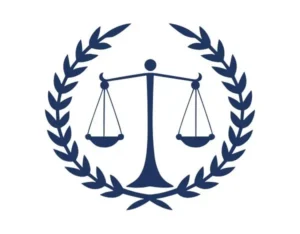Call Today: 949-569-7224
Call Today: 949-569-7224

At Bear Republic Law, we understand that workplace discrimination based on disabilities can have devastating effects on your career, financial stability, and emotional well-being. Our California disability discrimination lawyers advocate tirelessly for employees facing unfair treatment, harassment, or denial of reasonable accommodations in the workplace.
Legal Support You Can Count On
Reach out to our team at 949-569-7224 or visit our contact page to get started today.
Disability discrimination occurs when an employer treats an employee or job applicant unfavorably because of their disability, perceived disability, or history of disability. California's Fair Employment and Housing Act (FEHA) and the Americans with Disabilities Act (ADA) provide robust protections for workers with disabilities, ensuring their right to fair treatment and reasonable accommodations in the workplace.
Disability discrimination in California encompasses various practices that unfairly target or impact employees based on their actual or perceived disabilities. Under California's Fair Employment and Housing Act (FEHA), employees have strong protections against such discrimination. Here are the key elements that constitute disability discrimination:
Understanding these forms of discrimination is crucial for both employers and employees in California. If you experience any of these types of discrimination, it's important to document the incidents and seek appropriate legal guidance to protect your rights under California law.
At Bear Republic Law, we provide comprehensive support for employees facing workplace disability discrimination. Our approach combines thorough legal analysis with personalized advocacy to protect your rights and pursue justice in your case.
Case Evaluation and Legal Analysis
Our team begins by conducting a detailed evaluation of your situation. We examine the evidence surrounding your case, assess whether your condition qualifies as a disability under California law, and identify potential violations of state and federal regulations. This thorough analysis helps us build the strongest possible case for you.
Documentation and Evidence Gathering
We help you collect and organize all crucial evidence supporting your case. This includes obtaining medical records, employment documents, performance reviews, communication records, and witness statements. Our team ensures all necessary documentation is properly preserved and guides you in maintaining detailed records of discriminatory incidents.
Understanding Your Legal Rights
We take time to explain your rights under California's Fair Employment and Housing Act (FEHA) and the Americans with Disabilities Act (ADA). Our team clarifies what constitutes reasonable accommodation, explains interactive process requirements, and helps you understand the timeline for filing claims. This knowledge empowers you to make informed decisions about your case.
Administrative Complaint Filing
Our legal team handles the complex process of filing complaints with relevant government agencies. We ensure your complaint meets all technical requirements and deadlines, whether filing with the Department of Fair Employment and Housing (DFEH) or the Equal Employment Opportunity Commission (EEOC). We manage all necessary paperwork and communications with these agencies.
Negotiation with Employers
Our California disability discrimination lawyers serve as your advocate in negotiations with employers and their legal representatives. Our understanding of disability law allows us to effectively negotiate reasonable accommodations, reinstatement, or fair compensation for damages. Our involvement often leads to employers taking claims more seriously and considering settlement options carefully.
Settlement Evaluation
When settlement offers arise, our disability discrimination lawyer evaluates them based on your case strength and potential damages. We provide guidance on whether to accept an offer or continue pursuing legal action. Our assessment considers factors such as lost wages, emotional distress, medical expenses, and potential future damages.
Workplace Communication Management
Our California disability discrimination lawyer manage communications with your employer while your case is pending. This helps prevent retaliation and ensures all interactions are properly documented. Our team advises you on handling workplace situations and protecting your rights during ongoing employment.
Litigation Representation
If your case goes to court, our disability discrimination lawyers prepare and present your case effectively. Our team develops legal strategies, drafts court documents, conducts discovery, deposes witnesses, and argues your case before a judge or jury. Our litigation experience ensures your rights are protected throughout the legal process.
Interactive Process Guidance
We ensure proper implementation of the interactive process required by law. Our team guides you through discussions with your employer about reasonable accommodations, helping to identify and document appropriate solutions for your disability-related needs.
Damages Assessment
Our team helps quantify the full extent of your damages. We consider various factors, including lost wages, benefits, emotional distress, and other consequences of discrimination. This comprehensive assessment ensures we seek appropriate compensation for all harm suffered.
Appeals and Post-Resolution Support
If necessary, we handle appeals of unfavorable decisions. Our disability discrimination lawyers also provide support after case resolution, ensuring your employer complies with settlement terms or court orders. This includes monitoring the implementation of agreed-upon accommodations or workplace changes.
Protection Against Retaliation
Our disability discrimination lawyer helps protect you from workplace retaliation after filing a discrimination complaint. Our team monitors your employer's actions, documents any retaliatory behavior, and takes swift legal action if necessary to protect your rights under anti-retaliation laws.
Long-term Career Protection
Our California employment lawyers help safeguard your long-term career interests. Our disability discrimination lawyer team can negotiate agreements that protect your future employment opportunities, ensure positive references, and maintain confidentiality about your case. Our guidance helps you make decisions that benefit both your immediate situation and future career prospects.

California provides robust legal protections for employees with disabilities through both state and federal laws. The Fair Employment and Housing Act (FEHA) and Americans with Disabilities Act (ADA) establish the following key rights for workers:
If you believe any of these rights have been violated, you have the right to take legal action. Time limits apply for filing discrimination complaints, so it's important to act promptly to protect your rights under California law. Contact a qualified legal professional to understand your options and ensure your rights are protected.
Recognizing disability discrimination in the workplace is crucial for protecting your rights under California law. Below are key indicators that may signal discriminatory practices against employees with disabilities:
If you notice any of these signs in your workplace, it's important to document the incidents and seek legal guidance promptly. California law provides strong protections against disability discrimination, and understanding these signs can help you identify when your rights may have been violated.How Our California Disability Discrimination Lawyers Can Help
Under California law, employees who successfully prove disability discrimination may be entitled to various forms of compensation. These damages are designed to make the victim "whole" and deter future discriminatory conduct. Here are the potential damages available:
The exact damages available depend on your specific situation, the severity of discrimination, and the evidence supporting your claim. Working with a qualified legal professional can help ensure you pursue all available remedies under California law.
If you believe you're experiencing disability discrimination at work, taking prompt and proper action is crucial to protect your rights and build a strong legal case. Here are the essential steps you should take:
Taking these actions can strengthen your legal position and help protect your rights under California law. Remember, the sooner you take action, the better positioned you'll be to address the discrimination effectively. Contact a qualified legal professional to guide you through this process and ensure your rights are protected.
Protect Your Rights – Contact Bear Republic Law Today
If you're experiencing disability discrimination in your workplace, don't face it alone. Bear Republic Law's experienced legal team is ready to evaluate your case and help protect your rights under California law. Schedule your confidential consultation through our website to discuss your situation and explore your legal options.
Legal Support You Can Count On
Reach out to our team at 949-569-7224 or visit our contact page to get started today.
What is the time limit for filing a disability discrimination lawsuit in California?
Under California law, you must first file a complaint with the Department of Fair Employment and Housing (DFEH) within three years of the discriminatory act. After receiving a right-to-sue notice from DFEH, you have one year to file a lawsuit in court.
Does my employer need to know the details of my medical condition?
While you must disclose enough information to show you have a qualifying disability and need accommodation, you are not required to reveal your complete medical history or diagnosis. The information shared should be limited to what's necessary to establish your need for accommodation.
Can my employer require me to undergo a medical examination?
An employer can only require a medical examination if it is job-related and consistent with business necessity. The examination must be limited to determining your ability to perform essential job functions or assess accommodation needs.
Am I protected if my disability is temporary?
Yes, California law protects employees with both temporary and permanent disabilities. The key factor is whether the condition limits one or more major life activities, regardless of its duration.
Can my employer deny my accommodation request due to cost?
Employers can only deny accommodation requests if they can prove "undue hardship" - significant difficulty or expense when considered against factors such as the employer's size, resources, and nature of operations.
What should I do if my coworkers harass me about my disability?
Report the harassment to your employer following their established procedures. Your employer has a legal obligation to prevent and address disability-based harassment in the workplace.
If I'm on disability leave, can my employer fill my position?
While your employer can temporarily fill your position, they generally cannot permanently replace you unless keeping the position open would cause undue hardship or you are unable to return to work with or without reasonable accommodation.
Am I protected during my probationary period?
Yes, disability discrimination protections apply from your first day of employment, including during probationary periods and the job application process.
Can my employer ask about my disability during a job interview?
Employers cannot ask direct questions about disabilities during interviews but may ask about your ability to perform specific job functions with or without reasonable accommodation.
What if my disability is based on a mental health condition?
Mental health conditions are protected equally under California law. You have the same rights to reasonable accommodation and protection from discrimination as those with physical disabilities.
Do I need to have documentation to support my disability discrimination claim?
While documentation strengthens your case, you are not legally required to have written evidence to file a claim. However, having medical documentation, accommodation requests, and records of discriminatory incidents significantly improves your chance of success.
Can I be fired while pursuing a disability discrimination claim?
It is illegal for employers to retaliate against employees for filing discrimination claims. Any adverse action taken against you for pursuing your legal rights can form the basis of a separate retaliation claim.
Attorney Advertising | Prior results do not guarantee a similar outcome. The information on this website is for general information purposes only. Nothing on this site should be taken as legal advice for any individual case or situation. This information is not intended to create, and receipt or viewing does not constitute, an attorney-client relationship. This site is protected by reCAPTCHA and the Google Privacy Policy and Terms of Service apply.